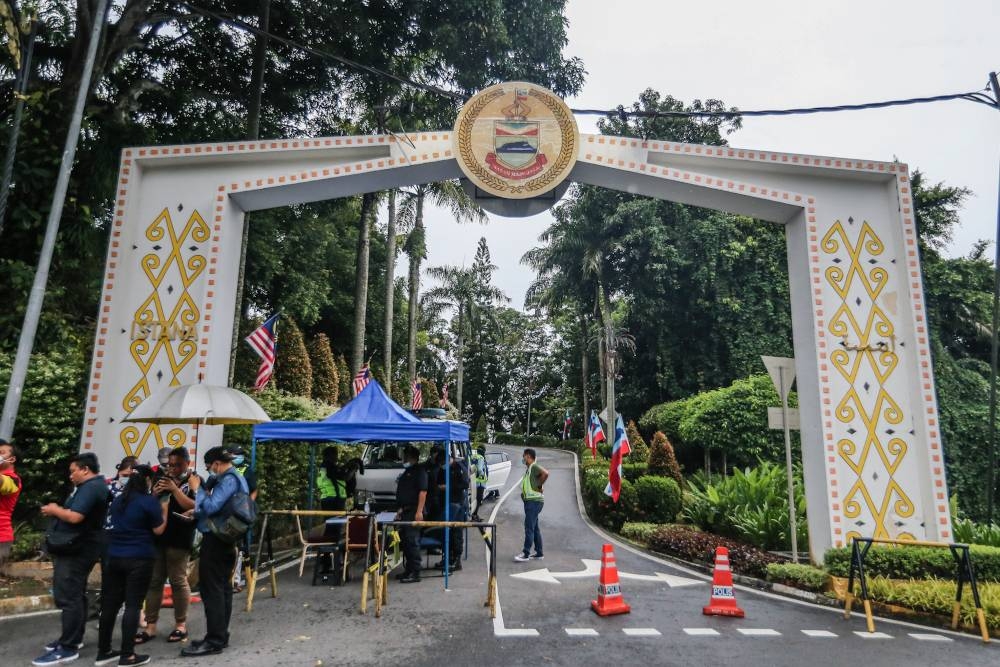KUALA LUMPUR, Jan 13 — The actual meaning of words in the Federal Constitution’s original text in English could end up being ‘lost in translation’ in the Malay or Bahasa Malaysia (BM) translation, Sabah Law Society president Roger Chin has cautioned.
Chin pointed out that the Malay translation of the Federal Constitution could potentially have the effect of amending constitutional rights without even going through Parliament and getting two-thirds majority support by MPs, due to the changes in meanings from the original English text.
The lawyer said the rights guaranteed to Sabah and Sarawak in the Federal Constitution could even risk being impacted, if Malaysia adopts the Malay translation as the authoritative text to override the original English text.
“Given that the authoritative text has always been the English version and the courts have interpreted and ruled on the meaning of the English words, it would of course be best if the English version be continued to be used until and unless one can be absolutely certain that the BM version is the perfect translation capturing all the meaning and nuances of the English version.
“Article 161E of the Federal Constitution requires consent from Sabah and Sarawak to amendments of certain Federal Constitution provisions and any reliance on a BM version which cannot be verified as to its accuracy runs the risk of Sabah's and Sarawak's rights being inadvertently affected without going through the process of getting two-thirds majority support in Parliament and also consent from Sabah and Sarawak state governors,” he told Malay Mail when contacted to weigh in on the Attorney-General’s recent proposal at the Opening of the Legal Year 2023 for the national language to replace English as the authoritative text for the country’s highest law.
Article 161E is a provision that has been part of the Federal Constitution since Malaysia’s formation on September 16, 1963 — when Sabah, Sarawak, then Federation of Malaya and Singapore agreed to come together.
Under Article 161E, which is titled “Safeguards for constitutional position of States of Sabah and Sarawak”, approval from Sabah and Sarawak is required for any amendments to key parts in the Federal Constitution which will affect those two Borneo Malaysian states.

What cannot be amended without Sabah’s, Sarawak’s consent
Under Article 161E(2), if the Yang di-Pertua Negeri of Sabah or Sarawak or both of them do not agree to changing these constitutional provisions, these provisions in the Federal Constitution cannot be amended:
The list of such provisions under Article 161E(2) cover the right of persons born before Malaysia’s formation to citizenship by reason of a connection with Sabah or Sarawak and equal treatment in relation to their own citizenship with others born or living in Sabah or Sarawak or others born or living in then Malaya.
The list also covers the courts and legislative assemblies in Sabah and Sarawak, the proportion for quota of membership that Sabah and Sarawak were allocated in the Dewan Rakyat which is the lower house of Malaysia’s Parliament.
In other words, consent from Sabah and Sarawak is needed if the Federal Constitution is to be amended when it comes to the “constitution and jurisdiction of the High Court in Sabah and Sarawak and the appointment, removal and suspension of judges of that court”, and matters which the the state legislature may (or Parliament may not) make laws on, and the executive authority of the state in those matters and the financial arrangements between the federal government and the state.
Under the list, consent from Sabah and Sarawak is also required for any amendments to the Federal Constitution when it touches on religion in Sabah and Sarawak, the use of any language in Sabah and Sarawak or in Parliament, and the “special treatment of natives” of Sabah and Sarawak.
Amendment under Article 161E includes addition and repeal.

Apart from Article 161E, there is also Article 159(3) of the Federal Constitution which requires a two-thirds majority in Parliament for any amendments to the Federal Constitution (except for some exceptions). This means two-thirds majority of the total number of members of the Dewan Rakyat and the Dewan Negara are required to vote in support.
There is also Article 159(5) where the consent of the Conference of Rulers is required for any amendments to certain key provisions in the Federal Constitution.
‘Lost in translation’
Last Monday, AG Tan Sri Idrus Harun announced plans to propose for the Malay translation of the Federal Constitution to be made the authoritative version – under Article 160B – which will override the original English text if there are any conflicts or discrepancies between the two texts, but said this is subject to the Yang di-Pertuan Agong’s approval.
Article 160B states that: “Where this Constitution has been translated into the national language, the Yang di-Pertuan Agong may prescribe such national language text to be authoritative, and thereafter if there is any conflict or discrepancy between such national language text and the English language text of this Constitution, the national language text shall prevail over the English language text.”
In his response to Malay Mail, Chin shared concerns about the Malay translation of the Federal Constitution not carrying the same meaning as the original English text.
He noted that many others have pointed out that the original document for the Federal Constitution is in English and the courts have made decisions based on the English version.
“It is a fact that when text is translated into another language, some of the meaning of the original version is lost in translation,” he said.
He highlighted as example Article 12(4) of the Federal Constitution, where the word “parent” in Article 12(4) the English text read together with Article 160(1) — where a singular word can include the plural and where words in the plural can include singular — was interpreted by the Federal Court in 2018 to cover situations involving “parents”.
The latest publicly available Malay translation, as of October 2020, of Article 12(4) however states “ibu atau bapanya” which means “mother or father”, which would carry a different meaning to the English text.
Chin then noted the Federal Constitution’s Malay translation – if different from the English meaning and if made authoritative — would change constitutional rights.
“It is not difficult to see how if the BM version is relied upon and the same is not consonant with the English meaning, would in effect amend the rights guaranteed under the Federal Constitution,” he said.
“Neither the federal government or the AGC consulted SLS on the current version of the BM translation of the Federal Constitution,” he said.
Currently, the English text for the Federal Constitution is the authoritative text in Malaysia, with the latest reprint dated October 15, 2020 of the Malay translation carrying this note on its very first page: “Teks ini HANYALAH TERJEMAHAN oleh Jabatan Peguam Negara bagi Federal Constitution. Melainkan jika dan sehingga ditetapkan sahih di bawah Perkara 160B Perlembagaan Persekutuan, teks ini bukan perundangan”.
The note in English means: This text is ONLY A TRANSLATION by the Attorney General’s Chambers for the Federal Constitution. Unless and until prescribed as authoritative under Article 160B of the Federal Constitution, this text is not law.”



















